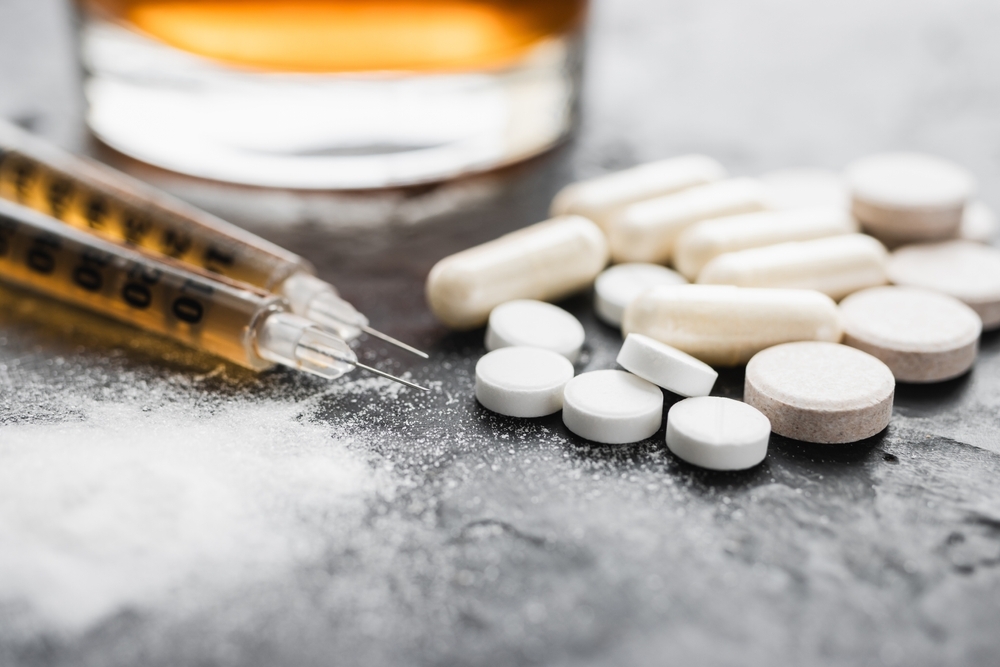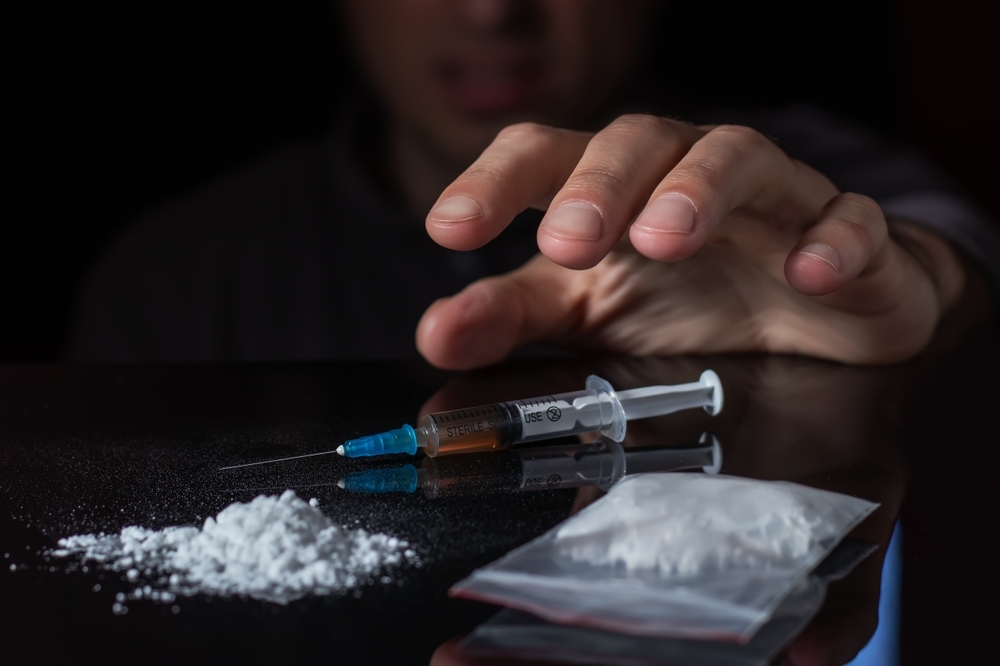
Written by:

Medically Reviewed by:
Last Updated:
June 11th, 2025
Heroin Addiction Treatment | Heroin Rehab and Detox
Facing heroin addiction can be terrifying. It’s like being caught in a trap that tightens around every part of your life, harming your health, pushing away your family and stealing all hope for the future. But the good news is, that trap can be broken. At Linwood House, we offer effective, compassionate heroin addiction treatment that can help you break free. With our support, you can put heroin behind you.
The importance of heroin addiction treatment
Heroin addiction treatment is important because heroin is such a destructive drug. It can cause severe illness, dangerous infections and even a risk to your life through overdose. Heroin also hurts the people you love most, disrupts your career or education, and can leave you feeling completely lost and alone.
Quitting heroin on your own is not only difficult but can be downright dangerous. As we will discuss below, heroin withdrawal symptoms can be extreme and powerful cravings and underlying personal issues can drag you right back into addiction.
With professional drug detox and rehab, you can rebuild your life piece by piece. You will get compassionate, expert care that helps you detox safely, work through everything that has brought you to this point and rebuild relationships with loved ones who have been affected by your heroin use.
Do you need heroin addiction treatment?
Accepting that you need treatment for heroin addiction can be complicated. What is obvious to friends or family may not feel clear when it’s your own situation, especially as denial or fear can keep you stuck. But if you’re starting to question whether heroin rehab could help, it’s worth considering these signs:
- You’ve repeatedly tried and failed to stop heroin use on your own.
- Heroin withdrawal symptoms hit you every time you try to stop heroin.
- Your whole life revolves around getting more heroin.
- You have committed crimes or done dangerous things to acquire heroin.
- Your physical or mental health has declined noticeably because of heroin use.
- Your relationships have been affected by your heroin use.
- You keep using heroin even though you know it’s bad for you.
If you recognise these signs, here are the three steps of heroin addiction treatment at Linwood House:
Step 1: Heroin detox
Heroin detox is the vital first stage of recovery. It is when your body gets rid of heroin and all the trace toxins, breaking physical dependency and setting you up physically and emotionally for the next steps.
Trying to detox alone at home is risky because heroin withdrawal symptoms can get intense and overwhelming, pushing many people back into heroin use. Relapse after a period of detox is especially dangerous because your body’s tolerance to heroin is lower, increasing your risk of an accidental, potentially fatal overdose.
Common heroin withdrawal symptoms include things like:
- Constant nausea
- Vomiting
- Excessive sweating
- Chronic, sometimes severe muscle aches
- Restlessness, anxiety and agitation
- Intense cravings for heroin
These heroin withdrawal symptoms can range from mild discomfort to being really tough, depending on factors like how long you’ve used heroin, your usual dose and even whether you have been injecting, snorting or smoking it.
The heroin detox timeline
The heroin detox timeline is unique for everyone. For instance, if you have been using heroin heavily for years or if you have existing health issues, your withdrawal symptoms may last longer and feel more intense than someone whose addiction began recently.
To give you a general idea of what you may experience, however, here is a typical heroin detox timeline:
Step 2: Heroin rehab
Heroin detox is an important beginning, but it’s not the whole story. Once drug detox has cleared the ground for your recovery, heroin rehab is where you start building something new and lasting. Through addiction counselling and a range of therapies and programmes that take a holistic approach to healing, heroin rehab helps address the emotional wounds that lie behind your heroin use.
Heroin rehab can help you better cope with the mental health issues that often go hand-in-hand with addiction, repair broken relationships and teach you how to manage stress without heroin.
What to expect from heroin rehab
Linwood House’s heroin rehab programme follows the 12-step approach and incorporates a whole range of effective and exciting treatment forms, including:
- Family therapy
- Group therapy
- Individual counselling
- Trauma-based therapy
- Art and sound therapy
- Cognitive behavioural therapy
- Dialectical behaviour therapy
- Yoga therapy
- Motivational interviewing
Our heroin addiction treatment programmes are provided on an inpatient basis. This means you will stay at Linwood House during detox and rehab to allow you to focus and give you some breathing space for recovery.
Before you leave, we will also help you create a heroin relapse prevention to keep you on the right track. This will include lifestyle changes, introduction to local support groups, finding new hobbies and ways to spend your time and engaging in our aftercare and Alumni Programmes. Speaking of which…
Step 3: Aftercare and Alumni
We are committed to your long-term success at Linwood House, so we offer an entire year of free weekly group therapy sessions as part of our aftercare programme. Aftercare helps you stay connected, motivated, and strong during your recovery, giving you a crucial layer of protection against relapse.
Unlike the first two stages of heroin addiction treatment, aftercare is an outpatient programme. This means that you will live at home and come in for sessions with other people who are making the transition back home.
On top of aftercare, you will also be warmly welcomed into our Alumni Programme. Think of it as a supportive extended family, always ready to listen, encourage and understand your experiences. You can stay connected through regular meetups, join our private chat groups, share stories and find strength and support whenever you need it.
Start heroin addiction treatment with Linwood House
Seeking help for heroin addiction takes real courage. But once you make that brave choice, your life can start changing in ways you never thought possible. Linwood House’s heroin addiction treatment programmes have helped countless people move beyond heroin and build healthier, happier futures. When you’re ready to take that first step, our warm, supportive team walks you through each stage, answers your questions and helps you feel comfortable and confident. Contact us today and let’s start your journey together.
Frequently asked questions
(Click here to see works cited)
- NHS. “Methadone – medicine used to treat heroin dependence.” NHS, 24 March 2021, https://www.nhs.uk/medicines/methadone/. Accessed 19 April 2025.
- UK Addiction Treatment Centres. “Heroin detox | Heroin withdrawal & symptoms | UKAT.” UK Addiction Treatment Centres, 5 December 2023, https://www.ukat.co.uk/detox/drug/heroin/. Accessed 19 April 2025.
- National Institute on Drug Abuse. “What are the treatments for heroin use disorder?” National Institute on Drug Abuse, 8 June 2018, https://nida.nih.gov/publications/research-reports/heroin/what-are-treatments-heroin-use-disorder. Accessed 19 April 2025.
- NHS. “Heroin addiction: get help.” NHS, https://www.nhs.uk/live-well/addiction-support/heroin-get-help/. Accessed 19 April 2025.
- Bluthenthal, Ricky N et al. “Opioid withdrawal symptoms, frequency, and pain characteristics as correlates of health risk among people who inject drugs.” Drug and alcohol dependence vol. 211 (2020): 107932. doi:10.1016/j.drugalcdep.2020.107932





